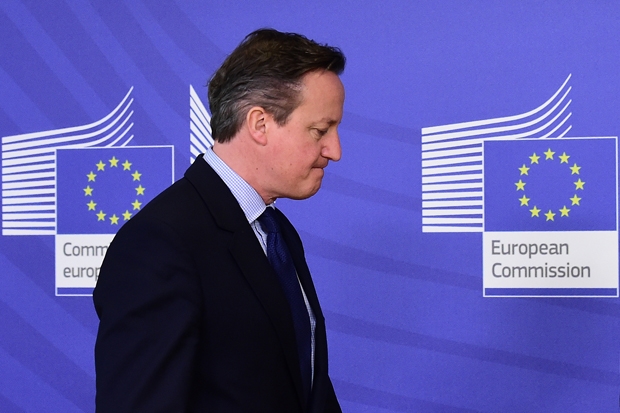Throughout his negotiations with the European Union, David Cameron was fatally undermined by his own lack of resolve. He was never going to recommend an ‘out’ vote in his referendum, as the other leaders knew. He promised a referendum three years ago, not from any great sense of conviction, but as a ploy to stop his party talking about Europe until after a general election which he half-expected to lose. Then, in May last year, he found himself with a majority — and in a position to renegotiate. But not in a position to win, and for a simple -reason: the other side always knew that he’d say yes, no matter what.
Only last year he said that Britain needed a ‘proper, full-on’ change in terms of its engagement with the EU — a noble objective, for which there is much appetite. Britain voted for a free-trade deal in 1975 but ended up being sucked into a quasi-imperial political system. So Cameron’s opportunity was clear: to fight for the deal that Britain voted for first time around, and restore the basic principle that Britain can set its own laws.
It was an achievable ambition. The EU was negotiating from a position of weakness, given that its chaotic system of government incubated a financial crisis and an immigration crisis. Manuel Valls, the prime minister of France, said recently that the European project will ‘die, not in decades or years but very fast’ if the EU does not control the immigration crisis (which it looks unlikely to do). So if Britain were to vote to leave, it would further destabilise an organisation fighting for survival. If they thought Mr Cameron was serious about pulling out, then ‘proper, full-on’ change would have been offered.
Instead, the document this week was 16 pages of bluster and caveat — all of which makes it clear that the power resides in Brussels.








Comments
Join the debate for just £1 a month
Be part of the conversation with other Spectator readers by getting your first three months for £3.
UNLOCK ACCESS Just £1 a monthAlready a subscriber? Log in